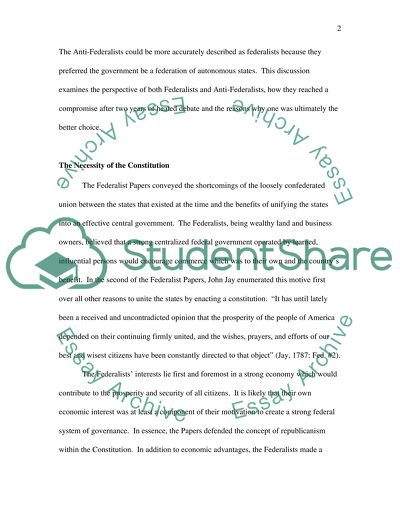Cite this document
(“Debate and Conflict Between Federalists and Anti Federalists Coursework”, n.d.)
Debate and Conflict Between Federalists and Anti Federalists Coursework. Retrieved from https://studentshare.org/politics/1542173-analytical-essay-on-debate-and-conflict-between-federalists-and-anti-federalists
Debate and Conflict Between Federalists and Anti Federalists Coursework. Retrieved from https://studentshare.org/politics/1542173-analytical-essay-on-debate-and-conflict-between-federalists-and-anti-federalists
(Debate and Conflict Between Federalists and Anti Federalists Coursework)
Debate and Conflict Between Federalists and Anti Federalists Coursework. https://studentshare.org/politics/1542173-analytical-essay-on-debate-and-conflict-between-federalists-and-anti-federalists.
Debate and Conflict Between Federalists and Anti Federalists Coursework. https://studentshare.org/politics/1542173-analytical-essay-on-debate-and-conflict-between-federalists-and-anti-federalists.
“Debate and Conflict Between Federalists and Anti Federalists Coursework”, n.d. https://studentshare.org/politics/1542173-analytical-essay-on-debate-and-conflict-between-federalists-and-anti-federalists.


